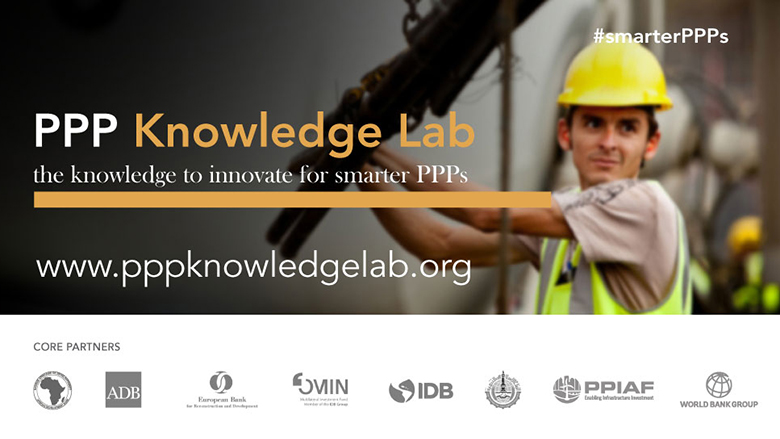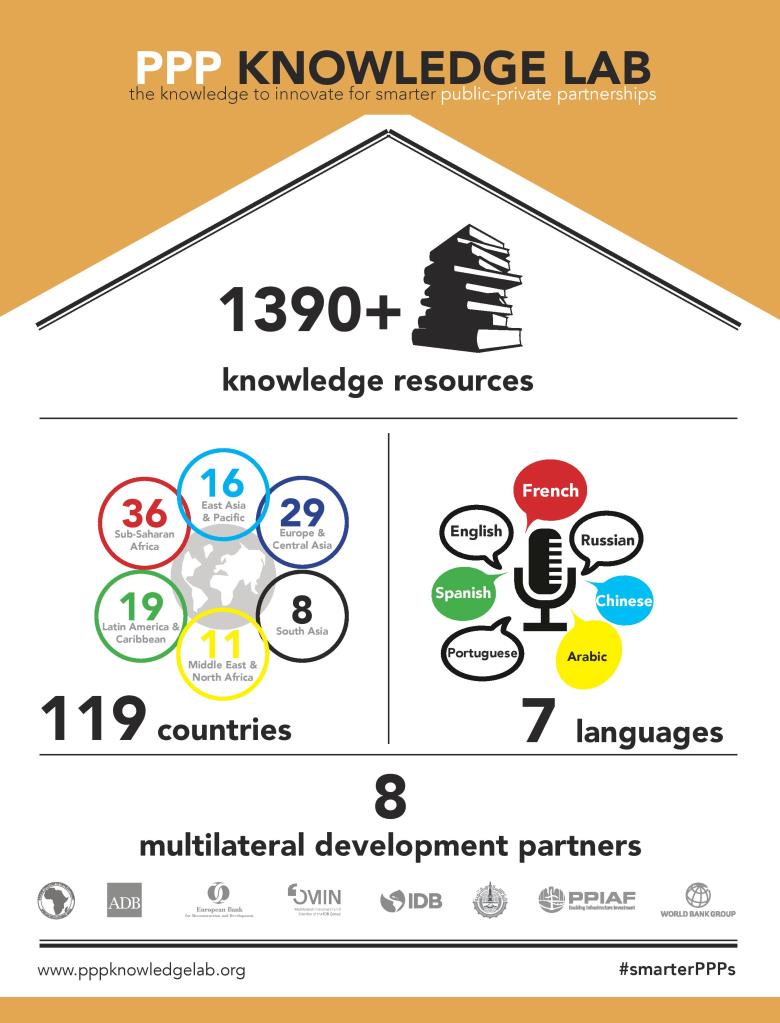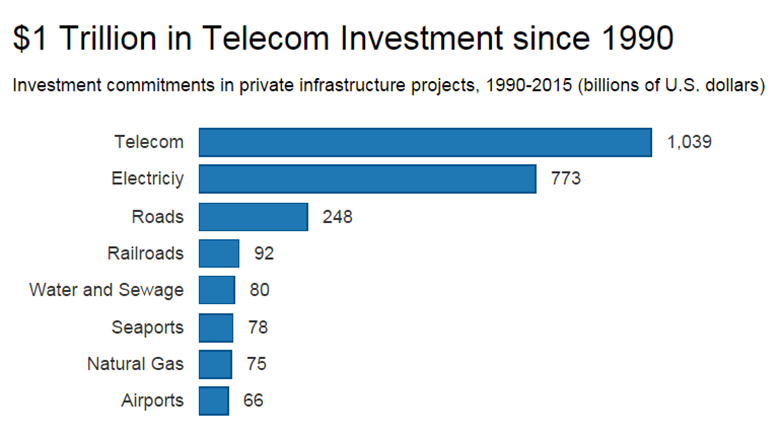Multilateral development agencies from around the world have collaborated to produce the PPP Knowledge Lab, the first comprehensive online resource that pools the knowledge and experience of industry leaders in public-private partnerships (PPPs).
Although the use of public-private partnerships to design, build, and deliver infrastructure worldwide has grown enormously in the past decade, the availability of information to support governments and their advisors in making smarter decisions on PPPs has not kept pace. Before the launch of the PPP Knowledge Lab, for example, anyone searching for information on PPPs was required to hunt down often incomplete or dated information across several platforms. Furthermore, credibility of the information or its source was often in question. The new site fills that long-standing gap in resource offerings while assuring the soundness of the information provided.
“Throughout my years conducing PPP research, it’s been time consuming to do endless byzantine web searches looking for concrete information and analysis on PPP investment by sector or by region. The information, often of dubious quality, was almost always only partially useful, and often outdated,” says Matthew Jordan-Tank, Head of Infrastructure Policy at the European Bank for Reconstruction and Development (EBRD). “This is of course even truer for the lonely PPP unit staffer laboring away in relative isolation in one of many emerging market countries,” he adds. “That’s why the PPP Knowledge Lab is as close to a revolution in information as we could ask for.”
The PPP Knowledge Lab, created with funding from the Public-Private Infrastructure Advisory Facility (PPIAF), is a collaboration between the African Development Bank, Asian Development Bank, European Bank for Reconstruction and Development, Inter-American Development Bank, Islamic Development Bank, and the World Bank Group. Together, they created a comprehensive online knowledge resource on PPPs that includes relevant information, such as infrastructure indicators and number of PPP projects in a given country, not available in one central place until now.



